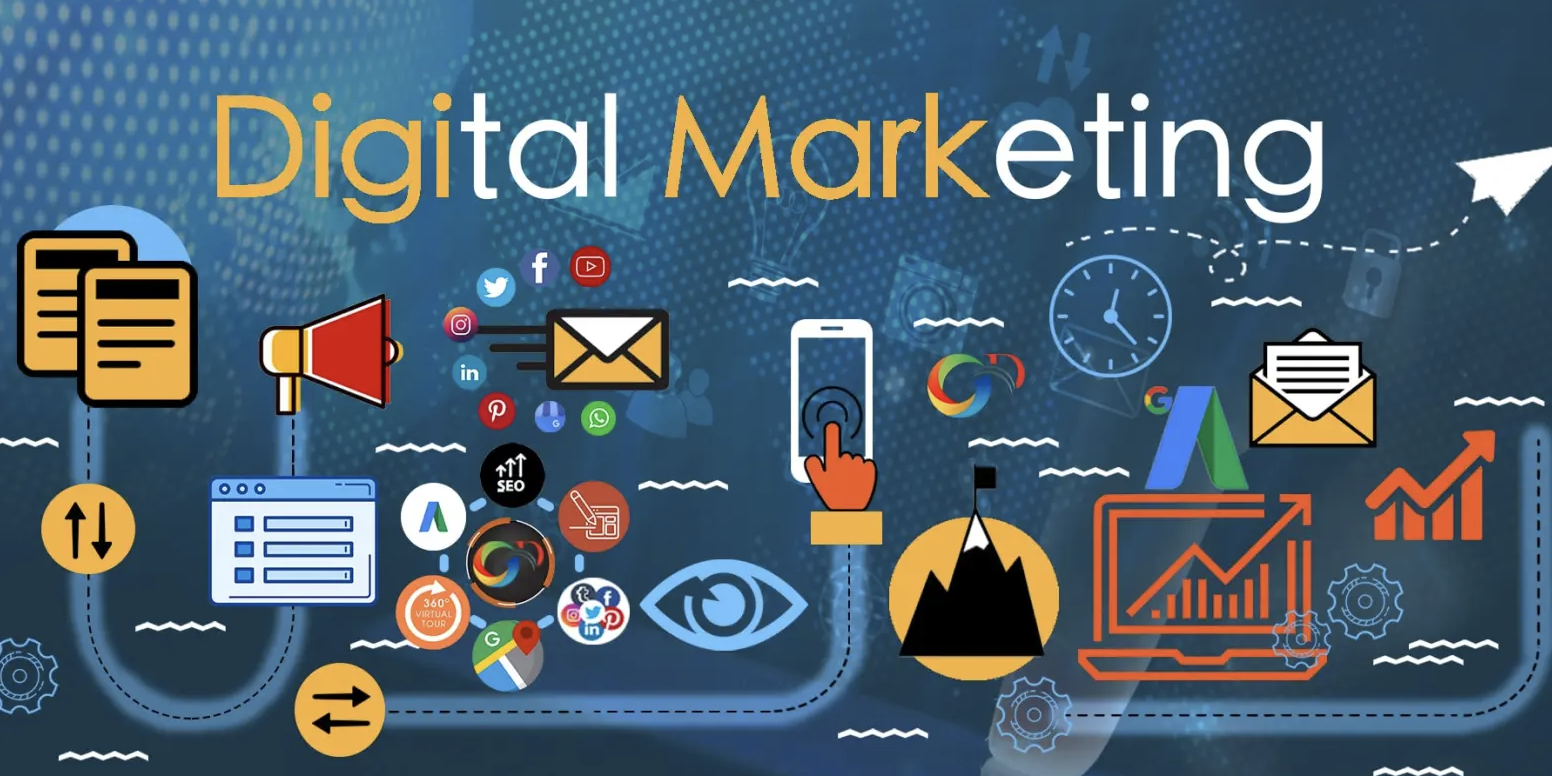
Why Digital Marketing is Essential for Retail Companies
Digital marketing encompasses a range of strategies and tactics designed to promote products and services online. For e-commerce companies, it’s the primary means of reaching potential customers, engaging with them, and converting their interest into sales. Here’s why digital marketing is indispensable for e-commerce businesses:
Visibility in a Crowded Market
The e-commerce landscape is highly competitive, with thousands of online stores vying for the attention of consumers. Without a robust digital marketing strategy, your brand can easily get lost in the noise.
- Search Engine Optimization (SEO): SEO is critical for ensuring that your online store appears in search engine results when potential customers search for products like yours. By optimizing your website for relevant keywords, you can increase your visibility and attract more organic traffic.
- Paid Advertising: Pay-per-click (PPC) advertising, such as Google Ads, allows you to target specific keywords and demographics, ensuring that your products are seen by the right audience. With PPC, you can place your products at the top of search results, driving immediate traffic to your site.
- Social Media Marketing: Social media platforms like Instagram, Facebook, and TikTok have become powerful tools for e-commerce brands. Through targeted ads and engaging content, you can reach a broader audience and build brand awareness.
Without these digital marketing strategies, your e-commerce store may struggle to gain visibility, resulting in low traffic and missed opportunities.
Building Brand Awareness and Trust
For e-commerce companies, especially those that are new or lesser-known, building brand awareness and trust is crucial. Consumers are more likely to purchase from brands they recognize and trust.
- Content Marketing: By creating valuable, informative content such as blog posts, videos, and infographics, you can educate your audience about your products and industry. This not only builds brand authority but also fosters trust with potential customers.
- Email Marketing: Email marketing is an effective way to nurture relationships with your audience. Through regular newsletters, product updates, and personalized offers, you can keep your brand top-of-mind and encourage repeat purchases.
- Social Proof: Customer reviews, testimonials, and user-generated content (UGC) on social media can significantly impact buying decisions. Digital marketing helps amplify this social proof, showcasing positive experiences and building trust with new customers.
Without a strategic approach to building brand awareness and trust, your e-commerce business may struggle to convert visitors into loyal customers.
Targeting the Right Audience
One of the most significant advantages of digital marketing is the ability to target specific audiences based on demographics, interests, and behaviors. Unlike traditional marketing, digital marketing allows for highly personalized and targeted campaigns.
- Data-Driven Marketing: Digital marketing provides access to vast amounts of data about your customers, including their browsing behavior, purchase history, and preferences. This data allows you to create personalized marketing campaigns that resonate with individual customers.
- Retargeting: Retargeting ads are an effective way to re-engage customers who have previously visited your site but did not make a purchase. By reminding them of the products they viewed, you can increase the likelihood of conversion.
- Lookalike Audiences: Platforms like Facebook and Google allow you to create lookalike audiences—groups of users who share similar characteristics with your existing customers. This helps you reach new potential customers who are more likely to be interested in your products.
Without digital marketing, it’s challenging to effectively target and reach the audience most likely to convert, resulting in wasted marketing efforts and lower ROI.
Driving Conversions and Sales
The ultimate goal of any e-commerce business is to drive sales, and digital marketing is instrumental in achieving this.
- Conversion Rate Optimization (CRO): Digital marketing involves optimizing every aspect of your online store, from product pages to checkout processes, to improve conversion rates. This includes A/B testing, improving site speed, and creating compelling calls-to-action (CTAs).
- Influencer Marketing: Collaborating with influencers who align with your brand can significantly impact sales. Influencers have the ability to reach and influence your target audience, driving traffic and conversions through their endorsements.
- Promotions and Discounts: Digital marketing allows you to easily promote sales, discounts, and special offers through various channels. Timely promotions can create a sense of urgency and encourage immediate purchases.
Without digital marketing, converting visitors into paying customers becomes much more difficult, leading to lower sales and revenue.
Engaging with Customers and Building Loyalty
Customer engagement and loyalty are critical components of long-term success for e-commerce businesses. Digital marketing provides the tools to build and maintain these relationships.
- Social Media Engagement: Social media platforms are not just for advertising—they’re also for engaging with your audience. Responding to comments, addressing customer inquiries, and participating in conversations helps build a community around your brand.
- Loyalty Programs: Digital marketing enables the creation of loyalty programs that reward repeat customers. These programs can be promoted through email marketing, social media, and your website, encouraging repeat purchases and fostering brand loyalty.
- Personalization: Personalizing the customer experience, from product recommendations to personalized emails, enhances customer satisfaction and encourages repeat business.
Without digital marketing, maintaining customer engagement and loyalty becomes a challenge, potentially leading to higher customer churn and lower lifetime value.
Conclusion
In the highly competitive world of e-commerce, digital marketing is not just an option—it’s a necessity. While celebrities with large followings may have the luxury of relying on their existing audience, most e-commerce businesses need to actively invest in digital marketing to succeed. From increasing visibility and building brand awareness to targeting the right audience and driving conversions, digital marketing is the engine that powers e-commerce growth. Without it, even the best products can go unnoticed, and the most well-designed online stores can fail to attract customers.
For e-commerce companies looking to thrive in the digital age, a comprehensive digital marketing strategy is essential. By leveraging the power of digital marketing, you can reach your target audience, build a loyal customer base, and ultimately drive the success of your online retail brand. That’s why it is the crucial role of digital marketing for retail companies to succeed and gain market share. To establish the brand and get momentum. Speak with experts to gain a better understanding. Get better results when working with industry experts through business consulting services.








